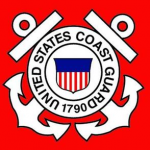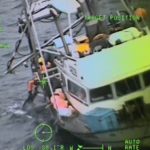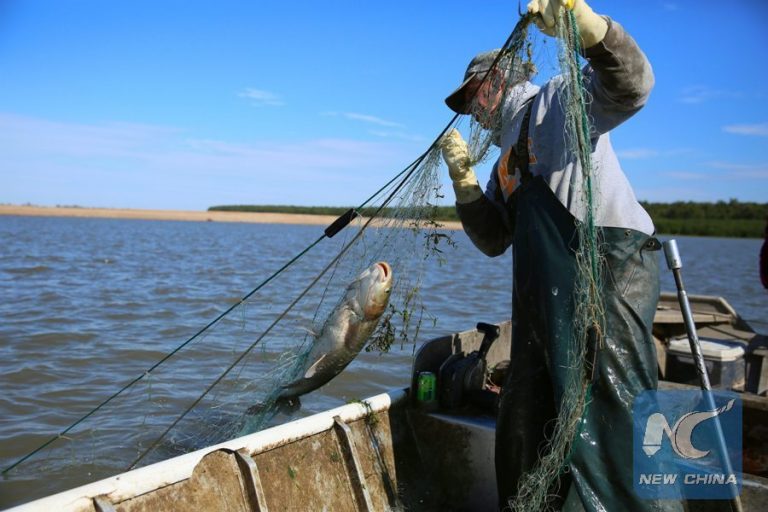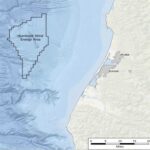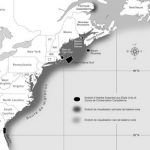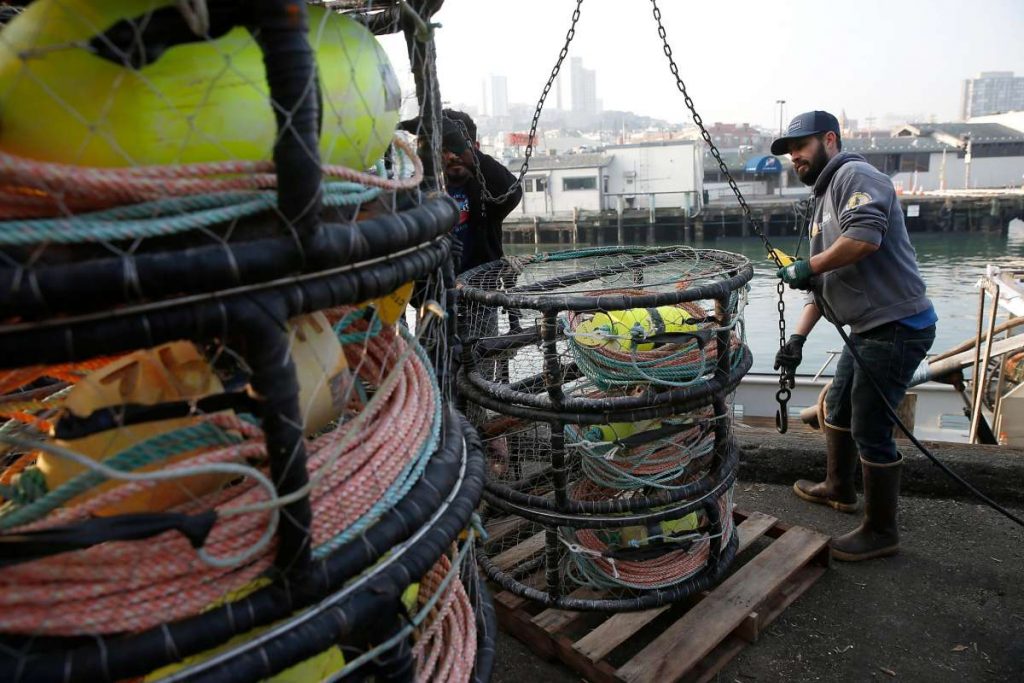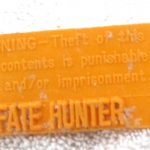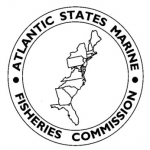Daily Archives: June 30, 2018
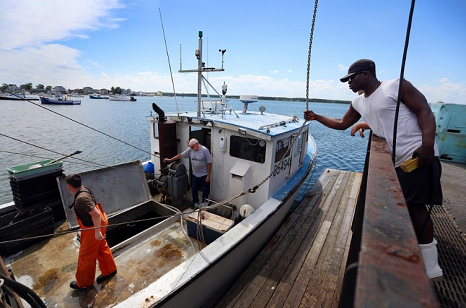
New Hampshire fishermen face declining prices
Local commercial fishermen say the price per pound they earn for their catch has dropped in recent years as their industry continues to struggle financially.Fishermen say they have been selling their fish at prices several cents per pound less than in years past, citing strict catch quotas, a decline in businesses that buy their fish and a rise in imported fish as causes for the drop in their earnings. Hampton fisherman David Geothel said prices for small American plaice, a species of flounder on which he relies in the face of strict cod catch limits, have dropped from $1.40 to $1.50 per pound in previous years to between 40 and 70 cents per pound now. >click to read< 21:55
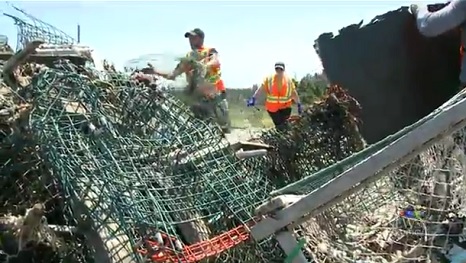
Volunteers clean up Cape Breton beach of debris left by storm
You wouldn’t have been able to tell from Saturday’s weather, but just days ago, lobster fishermen in Cape Breton lost thousands of dollars of gear in a wind storm. CTV’s chief meteorologist Kalin Mitchell said a peak wind gust of 91 kilometres per hour was recorded in Sydney during Tuesday’s storm. On Saturday the community came together to collect lobster traps, broken fishing gear, and trash of all kinds from the shores of Schooner Pond Beach in Donkin. >click to read<

Land ahoy! Fishermen challenge presidential designations of ocean monuments
This month, the Antiquities Act turned 112 years old. Originally conceived to protect Native American artifacts in the Southwest, the law has, like so many federal laws, been twisted over time by power-hungry government officials. Controversy over the law’s abuse is coming to a head in New England, where fishermen are locked out of a large section of their fishery by the creation of the Northeast Canyons and Seamounts Marine National Monument. After spending years working to recover fish stocks and promote more sustainable fishing methods, they rightly see this move as a betrayal that threatens their livelihoods. Why is a 112-year-old law so controversial today? The answer lies in the aggressive reinterpretation of the law by presidents seeking to expand their power. >click to read<14:00

FISH-NL demands Ottawa explain itself in light of massive cuts to caplin quotas
The Federation of Independent Sea Harvesters of Newfoundland and Labrador (FISH-NL) is demanding Ottawa explain itself in light of huge cuts to caplin quotas in the Gulf of St. Lawrence and off eastern and southern Newfoundland and Labrador. “This is a banner year for caplin in the Gulf with the federal government’s own scientists reporting an abundance of fish not seen in years, and yet the quota has been cut by 35 per cent,” says Ryan Cleary, President of FISH-NL. “How does that make sense? It doesn’t.” “At the same time, scientists said in March that the caplin stock off eastern Newfoundland and Labrador was down 70 per cent, but the relatively small commercial fishery isn’t having an impact,” he added. >click to read<11:57
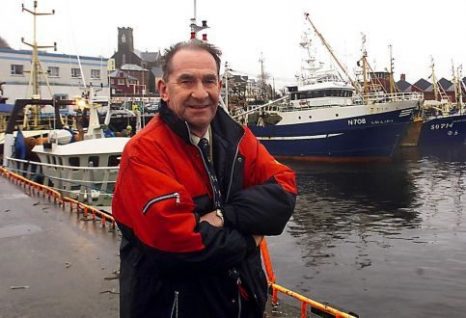
Obituary: Joey Murrin – Voice of Irish fishing industry for more than 40 years
Joey Murrin, who has died in his home port of Killybegs, Co Donegal, at the age of 81, was a leading fish industry lobbyist and natural communicator with a unique ability to simplify the most complex issues. A consummate negotiator, he dealt with 15 government ministers during his career, and was feared by several; even former taoiseach Charles J Haughey once expressing irritation at his popularity. Born in Killybegs the youngest of four children, he began his career at sea in 1954 as a deckhand, fishing on the San Paulin owned by Tommy Watson. >click to read< 11:24
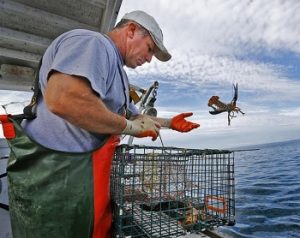
Marshfield lobsterman ‘living the dream’
Pregnant female: toss. Notch in the fin: toss. Jonah crab: toss. Legal lobster: Keep. Shell smaller than 3¼ inches: toss. Shell hasn’t hardened after molting: toss. This is the sorting method lobsterman Steve Carver follows as he pulls in his lobster traps — 200 per day — in Green Harbor. He can have up to 20 lobsters in a trap and throw all of them back into the water to comply with fishing regulations. And that’s only part of what makes lobster fishing a brutal profession. “We redefine ‘tired,’” Carver, 46, of Marshfield, said on a recent Thursday out on the water. “It takes a certain kind of person. All in all, it’s just a lot of hard work. I don’t see how you could do it if you didn’t love it.” Photo gallery >click to read<10:04
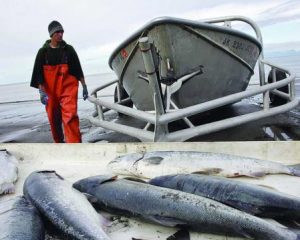
Poor salmon runs result in low harvests, disaster request
Poor salmon returns across the Gulf of Alaska are putting commercial fishing catches far behind the average and prompting a request for a disaster declaration. Commercial fishermen and fisheries managers have been puzzling so far this season as to why the sockeye salmon runs that usually keep boats in the water have been so weak. Copper River fishermen have been frequently closed this season because of poor sockeye counts at the sonar at Miles Lake. As of Wednesday, 320,145 fish had passed the sonar, below the cumulative management objective for that date of 409,931 fish, according to the Alaska Department of Fish and Game’s online fish counts. >click to read<09:09
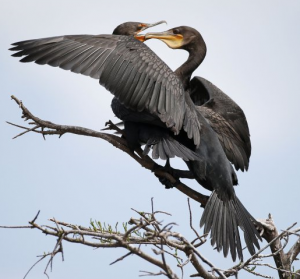
Cormorant, Fisheries Act concerns need to be addressed
Cormorant management and Canada’s Fisheries Act are just two of the issues that members of the Committee of Advisors to the Great Lakes Fishery Commission have raised and want action taken on by the Canada and US governments,,, “One of the concerns our committee has raised is with Canada’s Fisheries Act proposals-in particular with proposed marine protected areas,” Mr. Purvis told the Recorder.,, Another area of concern, said Mr. Purvis, is for needed cormorant management control. “I know in areas like the Les Cheneaux Islands in the US there are no fish left due to cormorants. They decimated the perch fishery for instance. And the US government had at one time allowed for a cull of cormorants, then they took this away. Now the perch fishery in that area is gone.“ >click to read<08:15

































